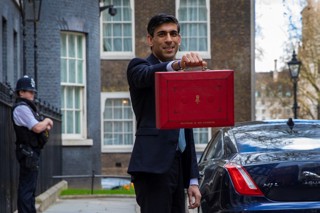Budget 2021 included an increase in corporation tax which, according to Alphabet, needs to be “carefully considered” by businesses when devising fleet strategy.
The Chancellor of the Exchequer, Rishi Sunak, announced that corporation tax will increase from 19% to 25% in April 2023.
Companies with profits of £50,000 or less, however, will remain at the current rate of 19%, and there will be a taper for firms earning above £50,000, with only firms earning £250,000 or above paying the full 25% rate.
The Treasury insists that 70% of businesses will be unaffected. But, with a reduction in the threshold for lease rental restrictions to 50g/km and below from this month (April) (meaning cars with higher emissions only qualify for 85% tax relief, not 100%), David Bushnell, principal consultant at Alphabet (GB), is urging fleets to consider how the changes could impact their bottom line.
He told Fleet News: “While it’s unclear how many fleets this may affect, all businesses should carefully consider their fleet strategies and look closely at the wholelife cost of the vehicles they operate, as this may present crucial cost savings.”
Bushnell says that if you compare a car at 50g/km and 51g/km at both 19% and 25% corporation tax (or any of the tapered levels between), then there is a difference on blocked corporation tax under lease rate rental restrictions. This difference in costs could run into hundreds of pounds per vehicle over a 48-month lease.
“This is why it’s important to consider the TCO (total cost of ownership) of a vehicle as there are cost differences that may not be immediately obvious when considering which vehicle to choose,” he explained. “They only come to light when you take in the full life cycle of a vehicle.”
This article was first published in the March edition of Fleet News.
























Login to comment
Comments
No comments have been made yet.